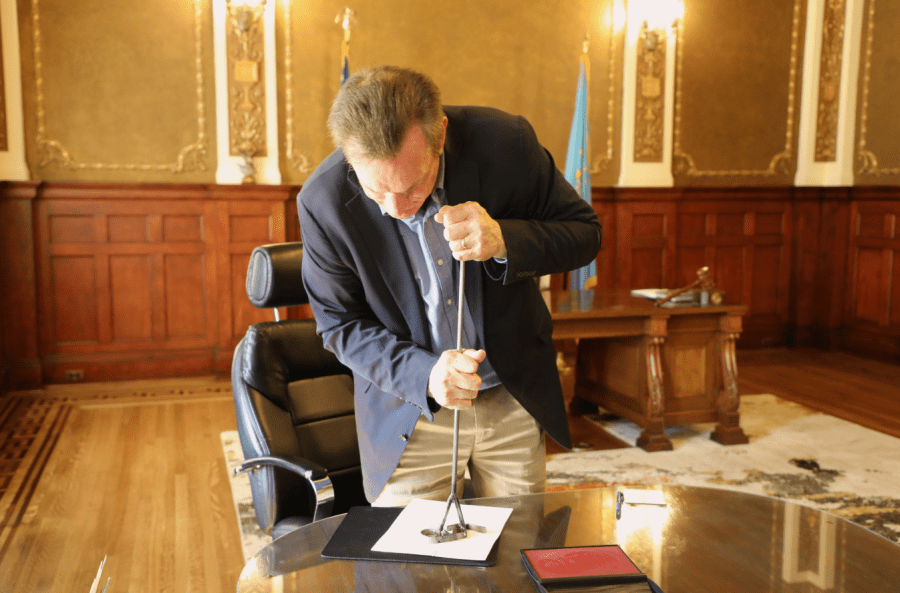SIOUX FALLS, S.D. (KELO) – Gov. Rhoden vetoed his second bill this legislative session. Those opposed to the bill say it would have been the most extreme geographic signature requirement for petitions in the country.
House Bill 1169 would have required petitions to receive at least 5% of signatures from each 35 Senate districts in the state, instead of the current law of 10% from the whole state.
“I am concerned that this bill will not withstand scrutiny in the courts,” Rhoden said in a statement; though he did call it a worthy bill. “This bill attempts to change the South Dakota Constitution in statute and I believe that approach to be misguided.”
Voter advocacy groups say they are grateful the bill wasn’t signed.
“Voters should be pleased that their voice has not been hindered,” said Amy Scott-Stoltz with the League of Women Voters. “We will continue to watch the legislature to see what else comes through in future years.”
The League, along with the Voter Defense Association and a few politicians, were teaming up to launch a referendum campaign against HB 1169 if Rhoden signed it.
Former State Sen. Reynold Nesiba was among those ready to sponsor the petition signature drive to move the bill to the November 2026 ballot.
“It doesn’t make any sense in a small state like South Dakota to take our population of about 900,000 and divide that up 35 ways,” Nesiba said in an interview with KELOLAND News. “It created an almost impossible standard because rather than running one, overall statewide petition campaign, you really would have to run 35 of them.”
Nesiba did say it’s possible for the bill to be revived in the legislature. The last day of the session is Monday.
Nesiba has a long history with the petition process in South Dakota. He’s been involved with the legislative process for constitutional amendment petitions regarding sales tax, minimum wage increases and payday loan interest rate caps.
During a Friday press conference to announce the campaign, Nesiba said there have been 33 bills attacking the petition process in the last eight years.
“They tried to do things that just systematically chip away year after year, to make it harder to put it on the ballot,” Nesiba said of lawmakers.
He pointed to past legislation that was signed into law like specific requirements for petition circulators, requiring the Attorney General to make statements on each amendment and a single subject rule.
South Dakota became the first state to adopt initiatives and referendums on a state level in 1898. In 1972, the state constitution was amended to allow constitutional changes by citizen initiative as well.
Since then, only 21 citizen-led initiatives have made it to the ballot and only eight have passed.
“It’s already really hard,” Nesiba added. “Many, many drives start circulating and never get to the point where they have enough signatures and they don’t even bother to turn them in.”
Speaker of the House Jon Hansen disagreed with Rhoden’s veto. He took to social media where he said rural communities currently have limited access to signing petitions.
“This bill would have finally given people who live in small towns and counties a voice in the petition process to amend our constitution…,” Hansen said. “If you live in a small town, you almost always don’t have a say about what amendments to our constitution go on our ballot.”


